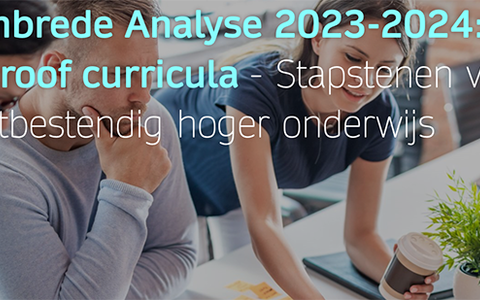System-wide analysis
System-wide analyses are intended to share good practices within the higher education community. The institutions thus learn from one another, specifically with respect to issues relating to educational policy and programme quality. System-wide analyses are open to all recognised providers of education. Universities and university colleges are required to participate in two such analyses in every six-year cycle, either as an institution or on a programme-basis.
General info
System-wide analyses enable institutions and programmes to learn from one another. Within the quality assurance system of Flanders, such analyses constitute an additional way to focus attention on the quality of education. Thus, they foster the quality culture of higher education.
System-wide analyses provide insight into the state of affairs regarding a particular aspect or aspects of educational policy and make such information available to the higher education community, external stakeholders such as the professional field, and, by extension, to society at large.
A system-wide analysis is completed with an overview report which amasses and shares the results of the analysis. Its main goal is to provide an explicit picture of good practices in Flemish higher education from an international perspective. Such practices can serve as a source of inspiration and thus create added value for the institutions and programmes in Flanders. The report may contain recommendations to institutions or programmes intending to copy a good practice. NVAO organises a system-wide analysis once a year. Participation is open to Flemish institutions and programmes that command experience and/or expertise in the relevant field. Universities and university colleges are required to participate in two such analyses in every six-year cycle, either as an institution or through one or more of their programmes. Other higher education institutions will be invited by NVAO and may participate on a voluntary basis.
Steps
COMPOSITION OF THE WORKING GROUP
PEER-TO-PEER EVENT
OVERVIEW REPORT
DISSEMINATION OF THE OUTCOMES
Rates
There is no charge for participation in the system-wide analyses.
Request submission
Institutions or programmes interested in participating may indicate so and delegate a contact person to take a seat on the working group responsible for the analysis.
Files
Contact person


